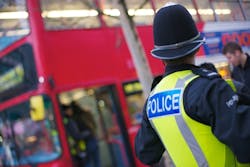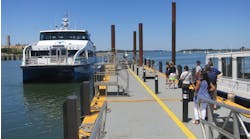Travelling on public transport in the West Midlands is now safer than ever after new figures show crime has fallen by 70% per cent in the last eight years.
The total number of offences recorded on bus and rail services across the region from April 1 last year to March 31 this year fell six per cent to 5,822, down from 6,199 for the same period the previous year.
Excluding trespass this equates to just one offence every 76,719 journeys across all modes of transport.
On the bus network the total number of recorded crimes was 2,755, a six per cent fall from 2,930 the previous year.
Crime on the rail network fell by 6.2 per cent, from 3,269 to 3,067.
The Midland Metro saw a total of just 122 offences compared to 104 the previous year, a 17% rise which has been blamed on an increase in trespass incidents and pedal cycle theft.
The figures have been released by the Safer Travel Partnership, a collaboration between West Midlands Police, British Transport Police, travel operators and Centro, the delivery arm of the West Midlands Integrated Transport Authority.
Inspector Lee Gordon, of the Partnership’s policing unit, said the figures showed public transport was an extremely safe way of getting around the region.
“We are delighted with these figures, they show that the hard work of the Partnership is paying off,” he said. “Even more importantly they go a long way to dispelling the misconception that public transport is somehow not safe. While any crime is one crime too many, the public can be assured that the chances of becoming a victim is extremely low and the Partnership will endeavor to ensure that risk gets ever smaller.”
Gordon said he was particularly pleased that reporting of sexual offences had risen thanks to the work of Project Empower.
This was launched in March 2015 to encourage people to report unwanted sexual behavior, particularly low level offences which victims may previously have thought not serious enough to be worth telling police.
“Empower has resulted in a number of successful prosecutions against people who thought they could get away with conduct that is totally unacceptable,” he said.
“It has enabled us to send out a very strong signal to victims that we are listening and we will take action, which in turn has encouraged them to come forward.”
The Partnership has a dedicated Anti Social Behavior (ASB) team which was introduced in 2013 to tackle passenger concerns about low level nuisance.
Transport Focus, the independent public transport watchdog, has found that since the ASB team was set up passenger concerns in the West Midlands have dropped from 17% to 7%, while in the same period satisfaction with personal safety rose year on year.
The Partnership also runs a successful Restorative Justice Project, which focuses on young people aged between 13 and 18, with no previous convictions, who either commit minor offences such as vandalism or ASB on buses.
Each person takes part in a victim awareness session where they meet bus staff who talk to them about the effect of their misbehavior, and also take part in work repairing vandalized vehicles.
Since its launch in 2014 more than 50 youngsters have taken part, with a re-offending rate of just 2% compared with the national average for young people of more than 30%.
The Safer Travel Partnership was created in 2005 and was the first of its type in the country. It has access to more than 1,000 CCTV cameras at bus, rail and Metro stations, park and ride sites, bus routes and shelters across the region.
A dedicated control center is staffed 24 hours a day and CCTV operatives can access cameras on services in real time, allowing officers to use mobile devices or tablets to respond immediately to incidents on the network.



